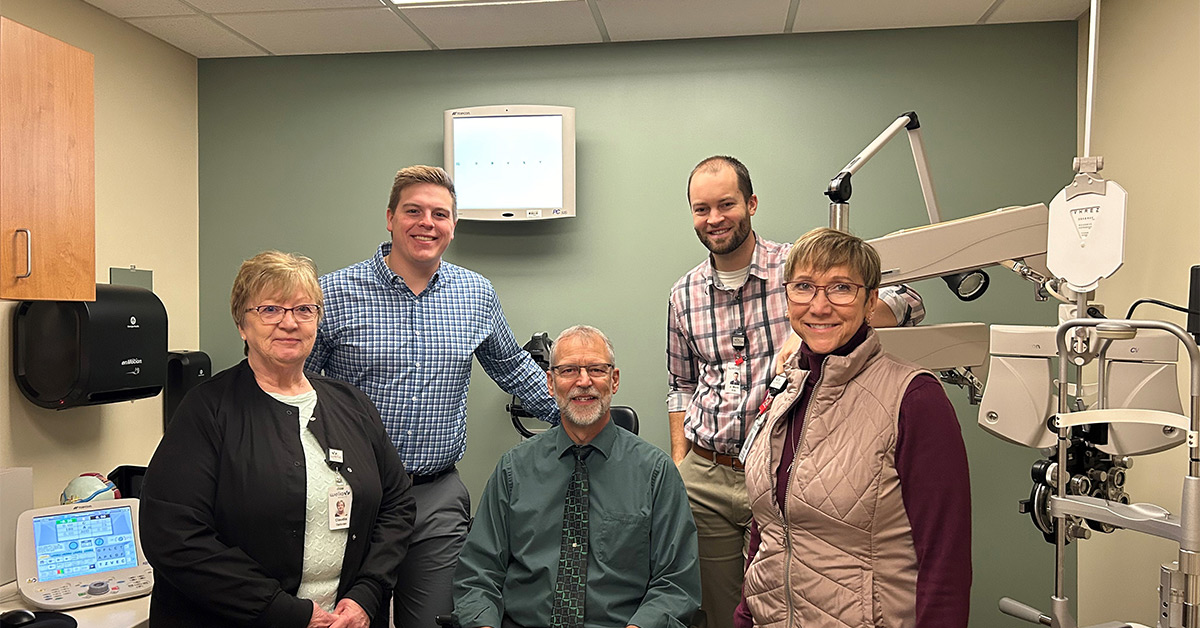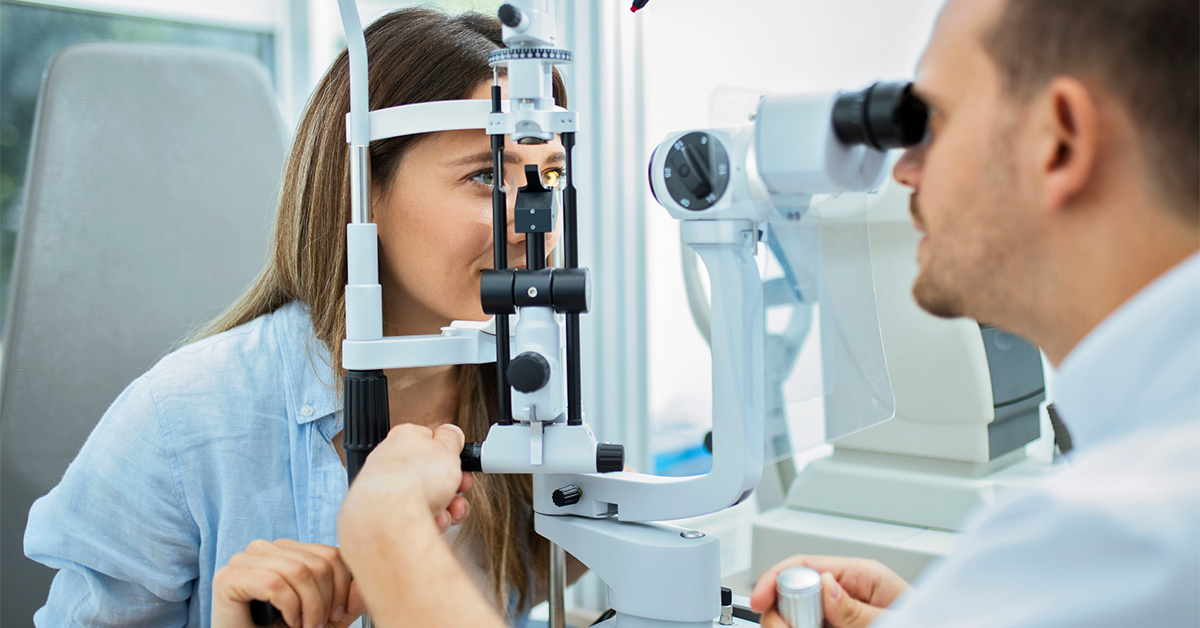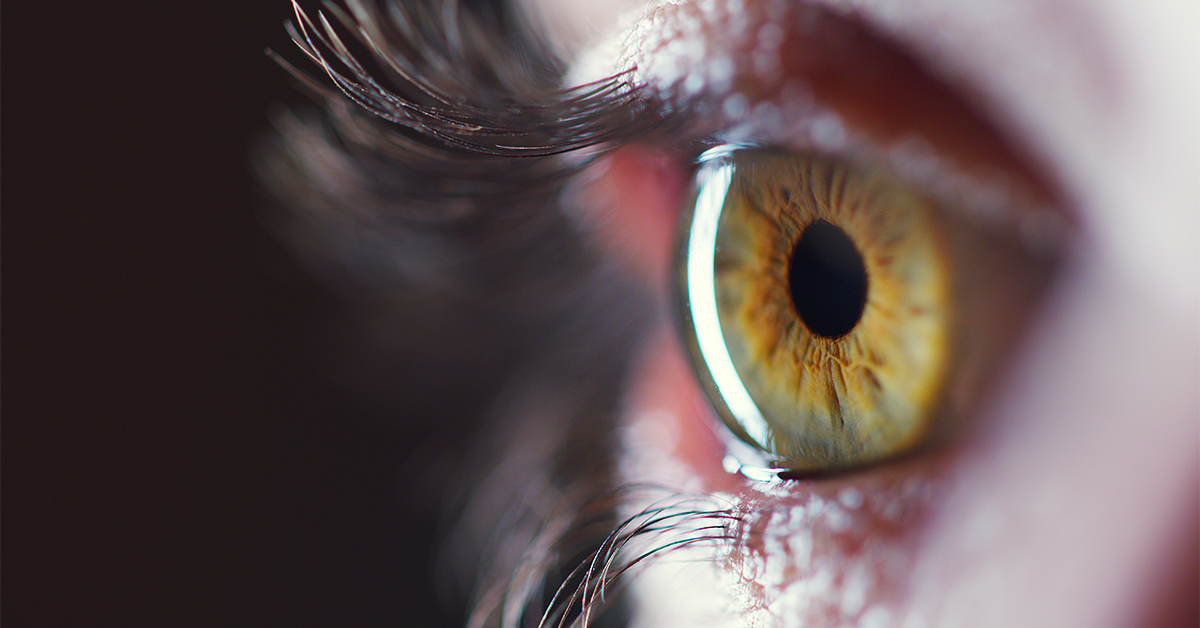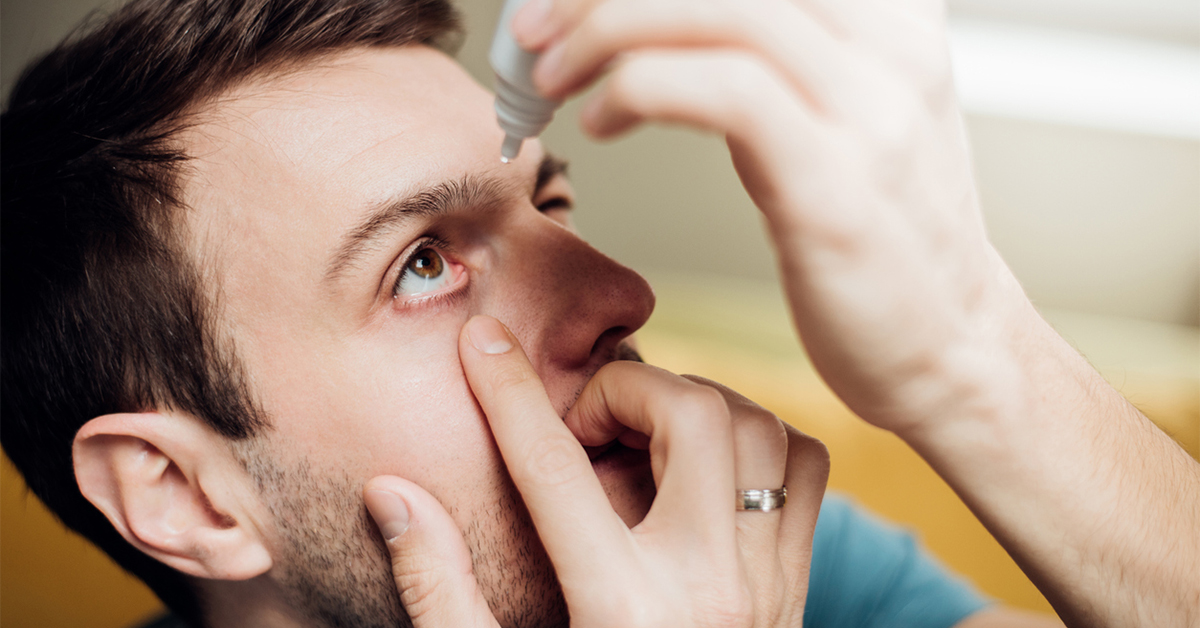For individuals with night blindness, things many of us take for granted, such as seeing stars on a clear night or walking into a movie theatre or restaurant, present a real challenge. Other activities can even be dangerous, like driving at night. Understandably, night blindness can bring fear and anxiety and limit activities.
What can cause night blindness?
Night blindness refers to poor vision at night or in dim light, is not a disease in and of itself but rather a symptom of another underlying vision problem.
Several conditions can impact the retinas in our eyes. Retinas are responsible for processing light as it enters our eyes and does this with the help of two types of cells that respond to light – rods and cones. Rods specialize in adapting to darkness and light, while cones distinguish colors. When rod cells become damaged due to a disease, injury or condition, they become less effective in detecting light, and night blindness can result.
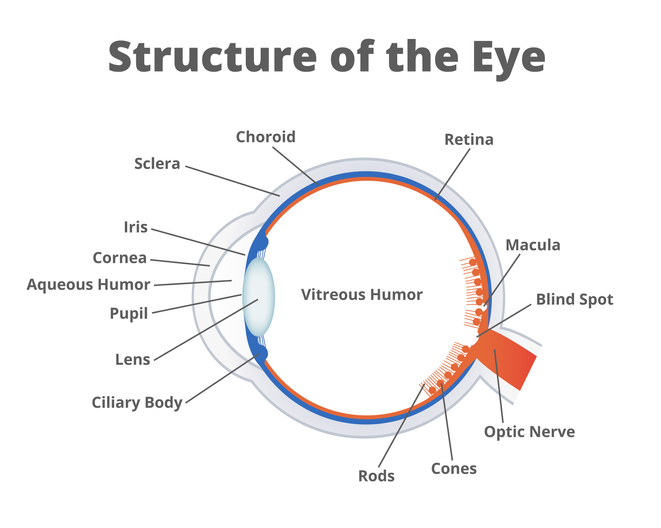
Some causes of night blindness include:
- Nearsightedness (myopia) – Distant objects appear blurry when the eye grows too long, impacting vision in any light.
- Astigmatism – An irregular shape of the cornea or lens of the eye, causing distorted vision.
- Glaucoma – Increased pressure in the eye, causing progressive damage to the optic nerve and impairing vision.
- Cataracts – The slow accumulation of debris or cloudiness in the eye lens due to the natural aging process.
- Retinitis pigmentosa – A genetic disorder that causes damage to the retina, changing how it responds to light.
- Diabetes – Elevated blood sugar levels, damaging tissues in the body, including the eyes.
- LASIK or PRK eye surgery – A change in the shape of the cornea to improve vision, in some cases, leading to impaired night vision as a side effect.
- Vitamin A deficiency – A lack of pigments needed for your eyes’ photoreceptors to work correctly
- Zinc deficiency – A lack of the enzyme needed to help the body absorb Vitamin A
What are some signs I could have night blindness?
- Blurry or cloudy vision in low light
- Trouble adjusting from bright areas to darker ones, and dark areas to lighter ones
- Seeing glare or halos around lights
- Difficulty seeing distant objects in low light
- Total loss of vision when entering a dark room (lasting more than a few minutes)
- Trouble seeing objects or faces in low light conditions
- Excessive squinting at night
- Difficulty adapting to the dark or blurry vision while driving at night
- Inability to see pedestrians walking at night
How is night blindness diagnosed?
Eye doctors can diagnose night blindness during a comprehensive eye exam. During an exam, your eye doctor will ask you about your medical history and conduct tests for any ocular disease or related vision problems. You may be asked to review a Pelli-Robson chart to determine the contrast sensitivity of your eyes. In some cases, your doctor may order a blood test to assess vitamin A and glucose levels.
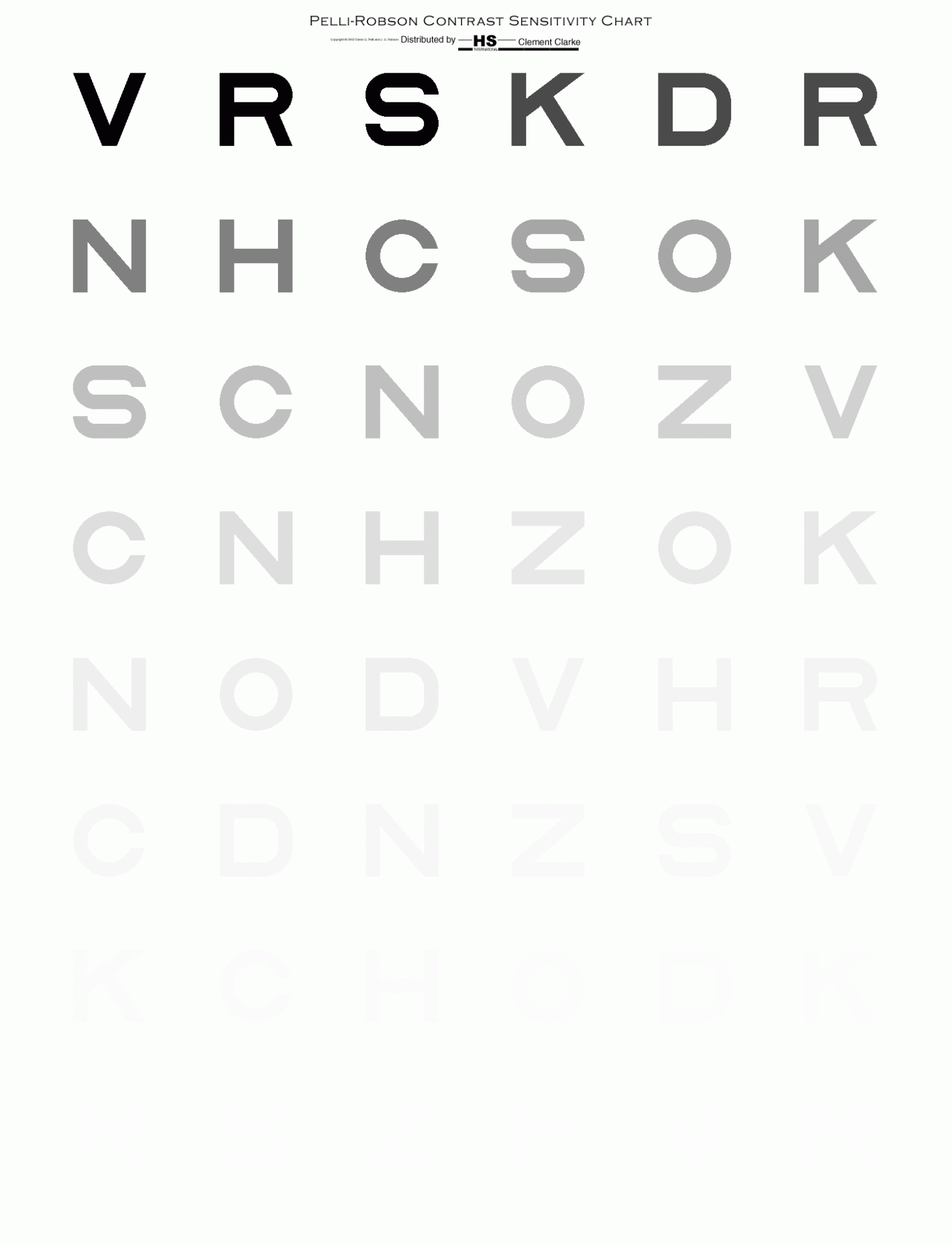
How is night blindness treated?
Since many underlying conditions can cause night blindness, treatments can vary from patient to patient. For example, if it is determined you have cataracts, your doctor will recommend a treatment plan to address your cataracts.
What else can I do the improve night blindness when I drive?
- Improve your visibility – clean your headlights and your windshield inside and out
- Slow down – give yourself more time to react to any unexpected hazards on the road.
- Look to the side – keep your eyes on the right edge of the road to help avoid the glare of oncoming headlights.
- Get prescription glasses – improve your vision in all lighting conditions, which may enhance night driving.
- Add an anti-reflective or anti-glare coating – choose to add these special lens coatings to your prescription glasses to reduce reflection and glare and improve visibility on the road.
- Wear sunglasses – protect your eyes, especially on bright days, from UV rays that increase your risk for cataracts and glaucoma. Be sure to select sunglasses that block UVA/UVB rays and blue light.
- Go tomorrow – choose to drive only during the day when you feel confident about your vision.
Schedule an appointment at the Eye Care Center in Mora if you have any concerns about your vision, including night blindness. Call 320.679.2020 or log in to MyChart for appointments.








